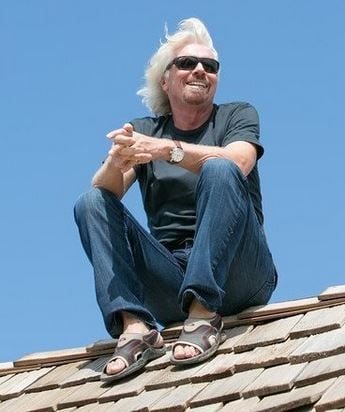Sir Richard Branson, the billionaire head of the Virgin empire, supports flexible working. This means staff can take time off whenever they like, and for as long as they want, without having to tell their bosses in advance. It also means that managers do not keep track of people’s working hours.
A growing number of companies have unlimited vacation policies, including Netflix, Motley Fool, Envenbrite, ZocDoc, SurveyMonkey, Ask.com, HubSpot, VMware, Evernote, Zynga and Glassdoor.
Some people warn that companies with no vacation policies could end up with ultra-overworked employees. Currently, four in every ten American workers do not take all their vacation entitlement. A growing number of employees choose to continue working on their portable devices while away from the office.
If companies get rid of official vacation days, isn’t there a risk that workers end up with nothing to trade, i.e. built up days that they can cash in all in one go?
How can vacation policies apply to a 24 x 7 workplace?
In his Virgin Blog, Sir Richard explains that flexible working has revolutionized how, where, and when people do their jobs. If working the typical hours of 9-to-5 no longer applies, he wonders, then “why should strict annual leave (vacation) policies?”.
He gives as an example of flexible working, employee conditions at video-streaming company Netflix. Netflix adopted and rewrote the book on flexible working, or rather, they threw the book away “on something very near and dear to the hearts of most workers around the world: their annual vacation day entitlement.”
His daughter told him about an article she had read in The Telegraph that explained Netflix’ policy, which encouraged him to believe it would be a very Virgin thing to do.
His daughter told him “I have a friend whose company has done the same thing and they’ve apparently experienced a marked upward spike in everything – morale, creativity and productivity have all gone through the roof.”
What his daughter described he found intriguing, making him want to learn more.
A Sunday Times poll reported Sir Richard Branson is the most admired business leader among Britain’s CEOs and CFOs.
The policy is really a ‘no policy’
He came to the conclusion that Netflix’ vacation policy was actually a ‘no policy’. He said “It’s a little bit like when you read that someone is offering a ‘zero per cent interest rate’. If there’s no interest can it really be called an interest rate?”
In what he calls the ‘policy that isn’t,’ all salaried workers can take off whenever they wish for as long as they want. They don’t even need to get their time off approved, and bosses are not asked or expected to keep tabs on their working days or hours.
The employee alone decides whether and when he or she fancies taking a few hours off or, a day, a week or even a month.
The assumption being that this is only done when the team is up-to-date with everything, and that their being away will not harm the business, or their careers.
Focus on what gets done
Netflix employees, given the nature of the business, were working in the office, at home, on the train, while shopping – in fact anywhere they received a phone call, business text or email. They asked their employer how their round-the-clock timetable could be reconciled with the old-fashioned time-off policy.
In other words, if Netflix could not possibly keep track of exactly where and when each employee was on the job, how could it apply an obsolete policy to their time away?
The company agreed, and now says “We should focus on what people get done, not on how many hours or days worked. Just as we don’t have a nine-to-five policy, we don’t need a vacation policy.”
Virgin also adopts a ‘non-policy’
“It is always interesting to note how often the adjectives ‘smart’ and ‘simple’ describe the cleverest of innovations – well, this is surely one of the simplest and smartest initiatives I have heard of in a long time and I’m delighted to say that we have introduced this same (non) policy at our parent company in both the UK and the US, where vacation policies can be particularly draconian.”
“Assuming it goes as well as expected, we will encourage all our subsidiaries to follow suit, which will be incredibly exciting to watch.”
Mr. Branson ends by asking whether all work places should adopt a ‘non-policy’ on annual leave, and invites his readers to comment on his blog.

